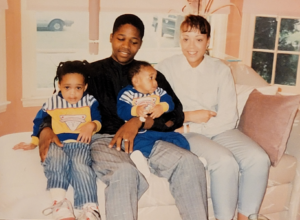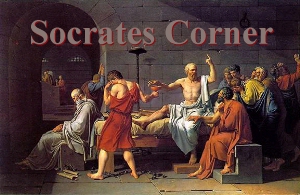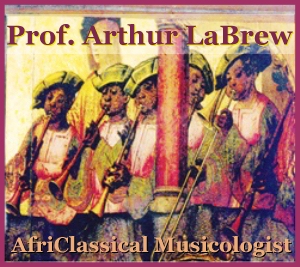I Remember Rodney Whitaker (on John Coltrane’s 95th Birthday)

To escape the 150-year Rothschild Chattel Slavery systems (e.g., Birth certificates, Death certificates, Social Security numbers bought, sold & trading people’s identities like animals on Wall Street) & Rothschild Debt Slavery systems (e.g., IRS, Income Taxes, Death Taxes, Fiat/Counterfeit currency not based on Gold or Silver, but based on NOTHING!—national currencies of the world promiscuously printed at will by the Rothschild Central Bankers to fund perpetual False Flag Wars) while keeping the entire world enslaved inside the Birth-School-Labor-Taxes-Debts-Retirement-Death cycle of the Rothschild Khazarian Mafia Matrix (1871-2021), then read and share the Truth of my Critical Thinking blog that has recently exceeded 21 million views @ EllisWashingtonReport.com & on Facebook— #JesusIsLord #DCActof1871
“Play what you know, and then play above that.”
~ Miles Davis
“One positive thought produces millions of positive vibrations.”
~ John Coltrane
“Miles (Davis)’s band, (John) Coltrane’s, Cannonball Adderley’s band, Horace Silver’s band — you’ve got one or two Detroit musicians in every hard bop band,” Whitaker said. “It’s a deep story. These cats from one stable of musicians changed music. They changed the world!”
~ Rodney Whitaker (City Pulse Magazine interview, 2016)
“Peace…”
~ Rodney Whitaker (the last word he always spoke to me after our hours-long conversations we frequently had back when he was 14-19 years old)
*N.B.: Suggested music to listen to while you read this essay—(1) Ballads Album by John Coltrane, “Say It (Over and Over again)”; (2) Lee Morgan’s “I Remember Clifford” played by Roy Hargrove (1969-2018, shortly before he died).
Remembering an Old Soul – Rodney Whitaker from back in the Day
HAPPY 95th BIRTHDAY John William Coltrane (September 23, 1926 – July 17, 1967) and REMINESCING ON RODNEY WHITAKER!—Thinking about my old protégé, the great Detroit Jazz Bassist and present University Distinguished Professor of Jazz Bass, Founder & Director of the Michigan State Jazz Studies on John Coltrane’s 95th Birthday (Sept. 23). Usually when one writes a Memorial essay for someone or in the Jazz tradition of an “I Remember” composition in the style of Lee Morgan’s classic tribute “I Remember Clifford”, it is for a Jazz great who has left this earthy plane much too soon like Charlie Parker, like Clifford Brown, like Lee Morgan, like Doug Watkins, like Roy Hargrove and many, many other Jazz Greats. However, I like to give people their flowers while they are alive, so thank the Lord that Rodney Whitaker is still with us – Rising, Thriving, Uniting – creating new vistas of creativity and perfecting his Jazz craft which to do it the right way takes more than a life time to achieve. Rodney lives Life and Music with an inevitable, driving pace that reminds me of the words by the legendary Ghanaian President Kwame Nkrumah—“Forward ever, backward never.”
:format(jpeg):mode_rgb():quality(40)/discogs-images/R-6423858-1418859595-3126.jpeg.jpg)
The 2nd track (Broadway) featuring you playing the head and solos by you, trumpeter Nicholas Payton and our old friend saxophonist James Carter (who was around that time “discovered” by Wynton Marsalis, who you both played with over the years), is my favorite piece on this album. You guys are in your words, swangin’ HARD!
Credits – Children of the Light Album
Baritone Saxophone – Alex Harding (tracks: 3)
Bass – Rodney Whitaker
Drums – Gregory Hutchinson (tracks: 4-6, 9, 10), Karriem Riggins (tracks: 1-3, 7, 8, 11)
Flute – Cassius Richmond (tracks: 1, 3, 10)
Percussion – Andrew Daniels (tracks: 1, 3, 5, 7, 9, 10)
Piano – Cyrus Chestnut (tracks: 1-3, 6-9, 11), Geri Allen (tracks: 4, 10)
Tenor Saxophone – James Carter (3) (tracks: 1-4, 6, 7, 9, 10)
Trumpet – Nicholas Payton (tracks: 1, 2, 3, 7, 8), Wallace Roney (tracks: 4, 6, 9, 10)
Therefore, I wanted to write this Memorial Essay to my young protégé from back in the day while he is still alive. I wanted to let Rodney Whitaker, his beautiful big family—including wife Cookey and their 7 children, our musician friends from Detroit, and the entire world know just how special this young man was and is to me; a young Man who I’ve always considered an Old Soul occupying a young body of flesh and blood. Yes, Rodney has always come across to me and everyone who knows him as a person possessing an Old Soul with wisdom and knowledge well beyond his years. Why? Because he is a very humble person who revivers History, seriously studies the past, and those who have bequeathed to us great gifts like Jazz Music which future generations like his generation must build upon and pass on musical legacies to future generations through the Ages.
*A very young Rodney and wife, Cookey visiting my mother’s home @18986 Greenlawn, Detroit, Michigan with their first two babies, Roz and Langston(?) This picture was probably taken in the early 1990s.

I remember back in the day (1983-85) when we first met in the Detroit Symphony Civic Orchestra (I played French Horn and you Bass); we played near each other in the back of the orchestra and would talk often during the breaks. We got along immediately and became fast friends. Later I took you to my church at Antioch COGIC where you became my Sunday School student and later I even led you to the Lord in your mother’s driveway using Chick tracts to go over the 4-steps to salvation in Jesus Christ—ADMIT-REPENT-BELIEVE-INVITE. Later you even brought some of your high school musician friends to church with us including a fine saxophone/flute player (Cassius Richmond[?]) he played the Danzi Flute Sonata and later Bach’s Brandenburg Concerto No. 4 with our church chamber orchestra. I also remember a fine young trumpet friend of yours that sometimes came to church with us (Coly?). Later he played with your band in some memorable Jazz Concerts you performed at Antioch COGIC.

According A.J. Williams, Michigan Chronicle Managing Editor, whose 2013 article, DETROIT JAZZ CITY, wrote the following about Detroit’s great, but unknown Jazz Music legacy—”The list of jazz musicians originally from Detroit, or who migrated here, is a long one and includes, among many others, Elvin Jones, Harold McKinney, Sir Roland Hanna, Wendell Harrison, Lucky Thompson, Pepper Adams, Robert Hurst, Paul Chambers, Ursula Walker, Rodney Whitaker, Phil Ranelin, Thad Jones, Regina Carter, Kirk Lightsey, Dorothy Ashby, Duane Parham, Tommy Flanagan, Straight Ahead (the all female band), Howard McGhee, Kenny Cox, and Ralph Armstrong.” Others include: Albert & Darryl Duncan, James Carter.
Do you remember we used to spend hours and hours listening to and playing a lot of Classic Jazz music? I remember going to hear you play with Donald Washington, your Jazz Teacher at Martin Luther King High School. The band was called, “Bird-Trane Sco-Now.” One gig was at Mayflower Congregational Church on Curtis Ave. in Northwest Detroit. You may not know but that was the first church I went to Sunday School at in 1968 (the year you were born) when we first moved from the Eastside East Village neighborhood (@2655 Montclair) to the Northwest side of the city (@18986 Greenlawn) shortly after the Detroit Riots of 1967 that produced what Sociologists called the “White Flight” phenomenon.
Cookey Cookin’ & Clara Schumann
I even remember during the intermission of that concert a second, smaller band appeared after Bird-Trane Sco-Now featuring your future wife, Cookey who played the alto sax with such a sweet, pure yet a penetrating sound that I haven’t heard since that time, along with your band director’s young son who was a promising young drummer at the time I think only middle school age! I remember Cookey’s lovely, freckled complexion and her beautiful long red hair that went down her back like an exquisite cape. Back then Cookey reminded me of a red-headed China doll that collectors would keep locked inside an exquisite curio cabinet. . . but Cookey could not, would not be caged! Cookey, reminds me of one of the wives of the legendary artist, Pablo Picasso. Her name was Franciose Gilot. She was an artist in her own right and was several decades younger than the indomitable, controlling Picasso who had to take a step back when she once told him this blunt statement in her high-pitched French accent—”You do not put me in boxes that I fit in!“

*Picasso with his artist wife, Francoise Gilot and nephew at Golfe-Juan, France (1948)
*Portrait of Francoise Gilot (1953), by Picasso
Cookey, I remember a party you and Rodney invited me to perhaps 30 years ago when you lived in a beautiful old house in Highland Park, Michigan. Although dinner was delayed about 3 hours, Rodney and some of his many other interesting guests keep my mind off my hunger with many fascinating conversations about music, philosophy, politics, economics, sociology, and many other ideas. However (and PLEASE don’t tell my wife this part!) when the dinner was complete (Cookey insisted on doing all the cooking herself for about 20-25 people!) it was well worth the wait. I believe she cooked turkey, smothered in gravy, mashed potatoes, green beans, Caesar salad… after that my memory fails me for I was in a 100% FOOD COMMA because Cookey’s cooking was that OUTSTANDING! That was the one and only meal I remember having from Cookey and if I never eat again, it was worth it!

Rodney, although I never told you this before, in reminiscing about you and your extraordinary Life in Jazz music with Cookey, I was always a bit saddened by the fact that Cookey didn’t pursue her musical gifts to the same degree you did. In a sense she was more “Old School” than both you and I and thus put having a large family (like both of you came from) and raising her 8 children to be Priority One—I respect her sacrifices tremendously! The ‘Cookey Career Dilemma’, as I will call it here is a Social Dilemma that affects all talented women like Cookey who must choose between Family or Career. Nevertheless, in the end Cookey got the best of both worlds. Meaning? I understand that for decades she has been your faithful assistant at the Jazz Studies Dept. at Michigan State University and thus is your eyes, your ears, your counselor, your “right-hand man” so to speak to keep you organized and on track in all your present and future endeavors.
This Cookey career dilemma also reminds me of an essay I wrote in 2007 titled—Clara Wieke: The Anti-feminist Feminist. This essay was about classical music and the legendary and transcendent friendship between a young, upcoming German composer in the early 1850s named Johannes Brahms (1833-97) and the musical couple that championed his career as an aspiring young composer who would uphold the Classical traditions of Haydn, Mozart, and Beethoven against the rising New School of Composers headed by Franz Liszt and Richard Wagner—Robert Schumann (1810-56) and his uber-talented wife Clara Wieke Schumann (1819-96), who was not only a mother to 8 children (like you and Cookey), but was considered one of the greatest pianists of the mid-late 19th century. Rodney, Robert Schumann wrote some very poignant words regarding his wife’s musical abilities in terms of composition that could easily be applied to your very talented wife, Cookey—

Other Memories I have of Rodney as a Young Teenaged Aspiring Musician
Rodney, Do you remember the jazz quintet you put together at aged 15 or 16 with several other of your young high school friends? We used to practice in the basement of one of the musicians parent’s home on Detroit’s eastside. Do you remember playing a few gigs at the Golightly Vocational Tech Center on Jefferson near your family’s house on Kirchner and Jefferson? Your Jazz Quintet played during these luncheons they had there which were fantastic! I was a bit older than you guys and had just graduated from college and begun my career as a music teacher in the Detroit Public Schools. I even took sick days on those times you set up gigs so that I wouldn’t miss those legendary events.
Man, back then you young cats were (to use your word I so adore) “Swangin” (e.g., Swinging, jazz lingo for playing passionately) HARD and the audiences loved it! Many people in the audience didn’t even finish their food which was prepared on a chef-level by the students who served the teachers, administrators and the special guests at that new Golightly Vocational Tech Center.
Rodney, exceeding gratitude to you my Friend for letting me play along with your early jazz band. Admittedly, since I exclusively studied Classical music I wasn’t very good at playing jazz on the French horn, but you insisted that I be in your band. As a classical musician, I used to be snobbish and looked down on Jazz musicians, but Pharez let me listen to some classic jazz music from his collection and showed me how difficult it was to solo and to play changes, until I had an epiphany experience and then I wanted to play jazz music myself. Therefore, my last 2 years in college I had studied Jazz due to the solicitude of my college friend, the great trumpeter and educator, Pharez Whitted (nephew of the legendary Jazz Trombonist, Slide Hampton). Rodney, do you know Pharez Whitted? Pharez taught me how to work hard, stay humble, and to always give a helping hand to the younger generations coming up.
Rodney, I’ll never forget your solicitude towards me! I remember the great jazz pianist Thelonious Monk had an album or two with a French horn player (Detroiter, Julius Watkins “the Father of Jazz French Horn”) that sounded great and encouraged me to study Jazz music in a serious manner. To me Rodney, you were following in a long and storied tradition in the History of Jazz of trying new things which reminds me of an iconic quote by Miles Davis who said, “Play what you know, and then play above that.” Rodney, I’ll always remember you as a great admirer of Miles Davis and John Coltrane. Looking back now I believe your admiration wasn’t only for their musicianship, their compositions, but the so-called “Sidemen” Miles and Coltrane had in their bands through the years that helped shape this Classical Age of Jazz Music during the 40s-60s. . . and many of those sidemen were from Detroit, a great, but little-known fact about Jazz History that you have always told young audiences who really wanted to learn the History of Jazz music. Jazz music simply would not exist as we know it today with out all the Jazz Greats from Detroit.
Speaking of Coltrane, one of my favorite tunes was on an album I gave you 30 years ago consisting of Ballads by the legendary saxophonist, John COLTRANE whose 95th birthday was yesterday (the day after mine!). The tune was titled—”Say It (Over and Over Again)”. In this essay have included some other Jazz albums I gave you back then which you obviously put to amazing use.

Marcus Belgrade, Barry Harris and Professor Arthur LaBrew—Our Old School Teachers who Taught us the Life of Music
Rodney, you and I have so many connections and since I no longer believe in the phenomenon of “coincidence” it must be due to God acting incognito in our lives! For example, do you remember in the late 1990s coming to Chicago and performing the first act with a talented female vocalist/pianist, followed by another band lead by the unstoppable bassist Christian McBride at Chicago’s Historic Blackstone Hotel? I was living in Chicago then and you graciously invited me as your guest to that concert. Your old teacher, the late, Great Marcus Belgrave (1936-2015) was in the audience and I was surprised that he knew me and asked about his old friend and my teacher, 2013 Kresge Music Fellow, Music Historian of 40 books including his 4-vol. Encyclopedic Dictionary of Black Classical Music and Musicians (1750 B.C.-1950), Professor Arthur LaBrew (1930-2015). GREAT MEMORIES! In writing this essay I just realized that Marcus and LaBrew died literally 3 months apart. I even wrote a memorial essay for my dear Friend and Mentor that was literally published on the day Professor LaBrew died titled—”Professor Arthur and the Myth of the American Dream.”
I remember some of your greatest jazz bassist influences—Charles Mingus, Oscar Pettiford, Ray Brown, Doug Watkins (Detroiter), Percy Heath, Jimmy Blanton, and ironically many of them even played with Coltrane like—Jimmy Garrison (who plays on the ballad linked below), Art Davis, Ron Carter(?), Reggie Workman and your favorite, perhaps the greatest Jazz bassist of them all – the Iconic and Legendary PAUL CHAMBERS, from Detroit!



An Aspiring Bassist will never go wrong living in the Chambers of Paul (Paul Chambers)
In conclusion, to me Rodney, though years and decades of “shedding” and hard work in my opinion you are now Paul Chambers REBORN! I found dozens of transcribed bass solos by your iconic Paul Chambers on Images.Google.com, and I’m certain you will enjoy perusing this site. My message to you Professor Rodney Whitaker is quite simple—Always keep “Swanging” and always put the Lord first in all that you say, do and think. . . Thanks for the Wonderful Memories my dear Brother!
~ LOVE & PEACE

{Text} Here is the link to the solo above.

Category: Uncategorized







